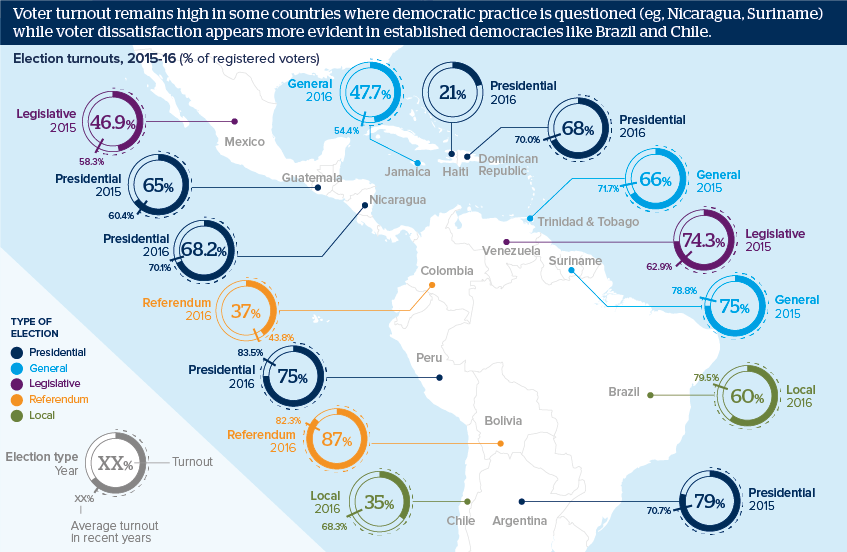Are Latin American voters wearying of democracy?
Voter turnout is falling in many countries as dissatisfaction with corruption and policy-making mount
Source: ElectionGuide.org; Oxford Analytica
Outlook
The shock defeat of the October referendum on the Colombian peace deal was partly attributed to low voter turnout, although at 37% this was not far below the average of recent years.
Arguably bigger blows to democratic legitimacy came in the recent local elections in Brazil and Chile, where turnout dropped to only 60% and 35%, respectively -- the latter down from 43% in 2012, already considered a worrying level. This appears to be a tacit protest against unpopular parties and corruption claims, and the belief that voting will change little.
By contrast, turnout remains high in countries with more dubious democratic credentials, and also in countries where there is hope of change -- such as the 2015 National Assembly elections in Venezuela, which produced a strong victory for the opposition.
Impacts
- Falling growth in most of the region will put further pressure on democracy, which has not fully delivered on inclusion.
- Party political identification has dropped and this trend seems set to continue.
- Lack of confidence in the transparency and representativeness of governments risks undermining participation further.
- These tendencies may undermine democratic legitimacy, boosting protest and the rise of ‘populist’ alternatives.
See also
- Latin American democracy may lose as delivery fails - Nov 28, 2017
- Chile election outcome could bring surprises - Apr 19, 2017
- Democracy falls short on inclusion in Latin America - Oct 20, 2015
- More graphic analysis
